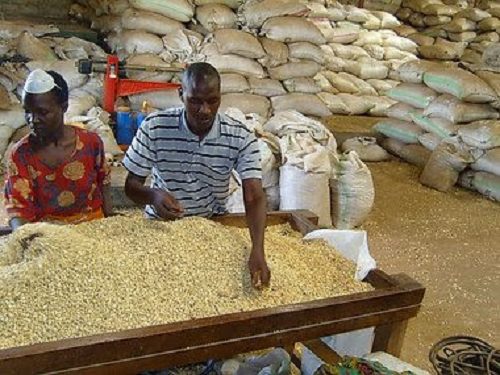A report by Agusto & Co has revealed that Nigeria’s sesame seed export value to Asia and Europe has potential value of N120 billion per annum.
The pan-African credit rating agency put the value of Nigeria’s export of the crop as at fourth quarter 2018 at N30 billion.
According to a report made available to THISDAY, Nigeria’s cashew and sesame seeds remains key crops that would drive the export diversification bid of the federal government, considering the crops’ rapidly developing markets due to growing consumption.
It noted that the global cashew market has recorded strong expansion in the last decade, with cashew nut production increasing at a compound annual growth rate of five per cent to 790,000 metric tonnes in 2018.
“The demand for Sesame seeds remains high because of the demand from other countries by pharmaceuticals and industries that produce skincare product
“As sesame remain key agricultural export commodities in Nigeria, the products like other agricultural commodities are traditionally exported in unprocessed form which creates a loss in value add.
“This leads to almost 40 per cent of global cashew supplies being shipped to India and Vietnam for shelling and this loss of value added totals about two hundred million dollars.
“Therefore, there is need for increased private investments in cashew and sesame processing which would involve investment in state-of-the-art processing facilities, raw material sourcing from reliable small and large scale farmers with good quality output as well as adequate marketing to reach wider clients.
“Most importantly, for cashew and sesame seeds processing to thrive, there is need for adequate supply of raw materials implying that farming challenges such as, use of crude farming implements, smallholder farmlands, and poor access to capital which inhibits farmers’ use of modern planting, harvesting and threshing machines, must be resolved, it stated.
“Growth in the international cashew market has been supported by increased consumption of cashew particularly in countries with more developed economies due to their greater health consciousness.
“Cashew nuts contain ‘heart-healthy’ fats, minerals and vitamins, which its consumers like to have in their daily diets.
“Also, other valuable parts of the cashew tree include the cashew apple which can be eaten raw or used as jam, preserves, juice, dietary fibre in confectioneries, bio ethanol fuel and as feed ingredient in the livestock industry whilst the juice of the cashew apple can also be used as salve to relieve rheumatic pain.
Source: THISDAY












